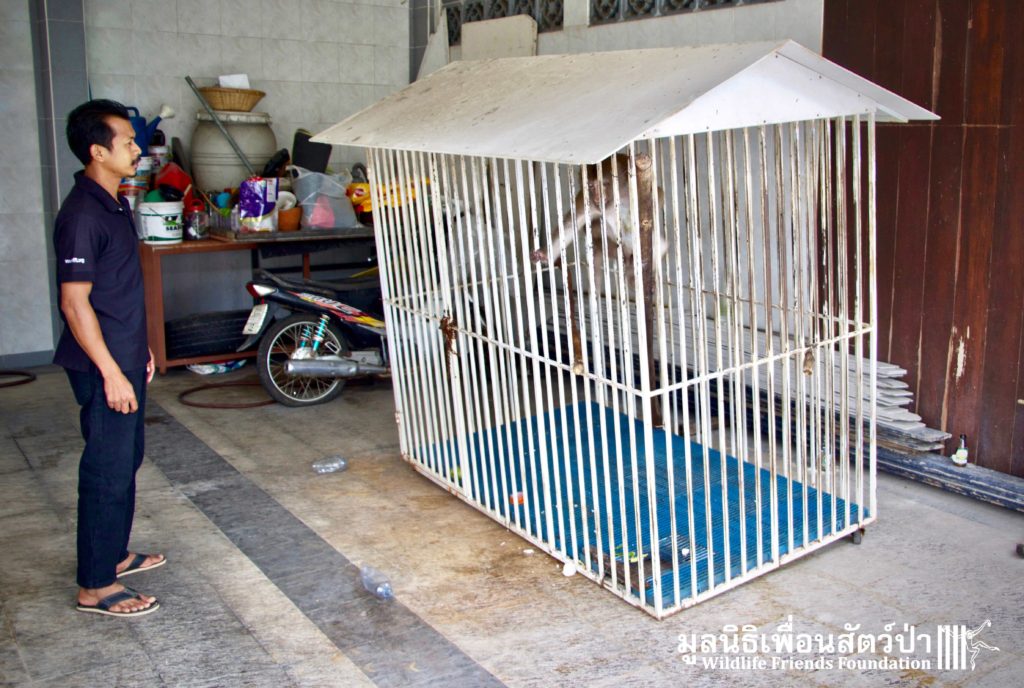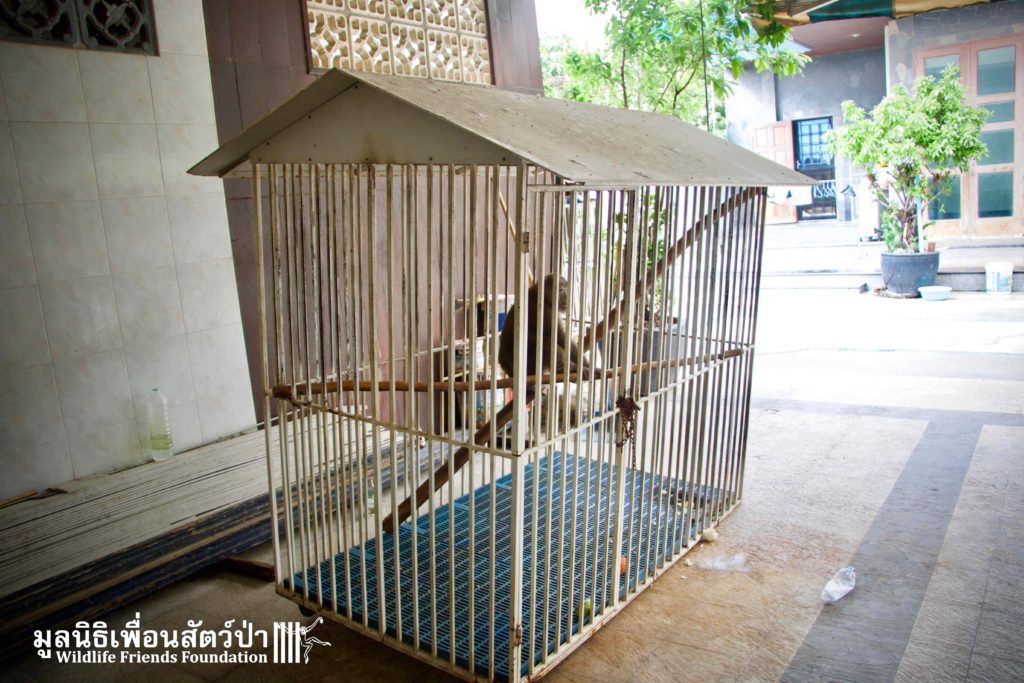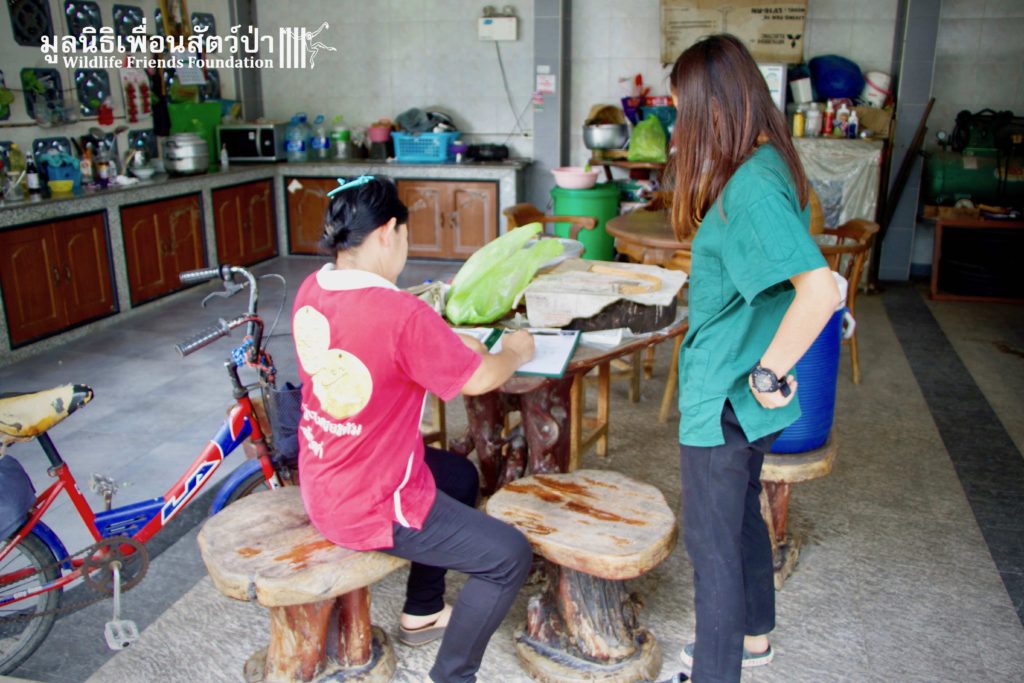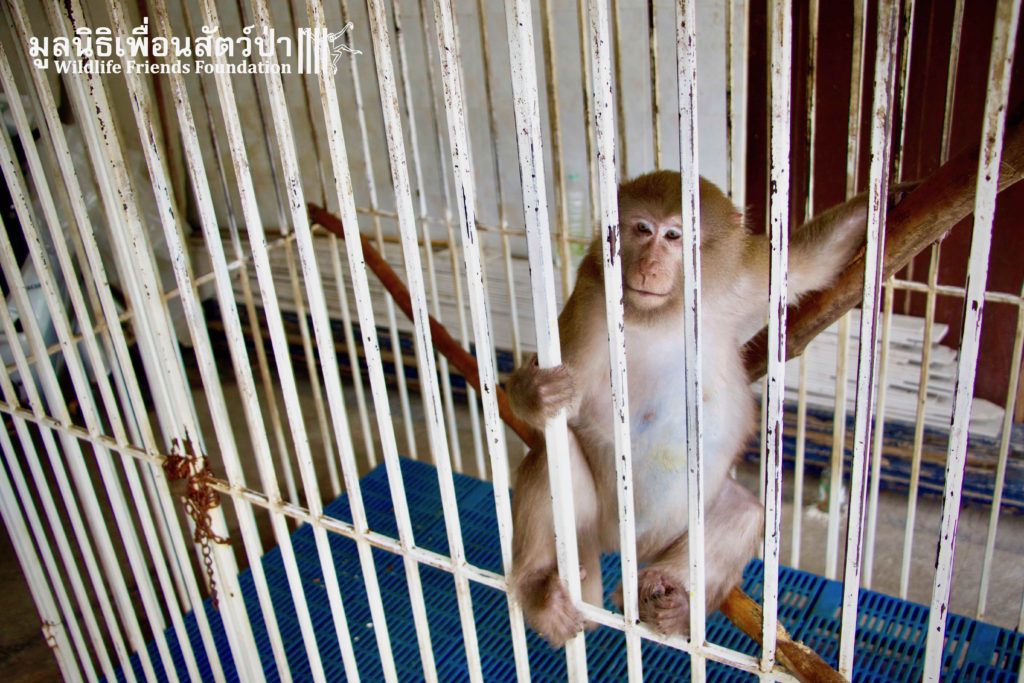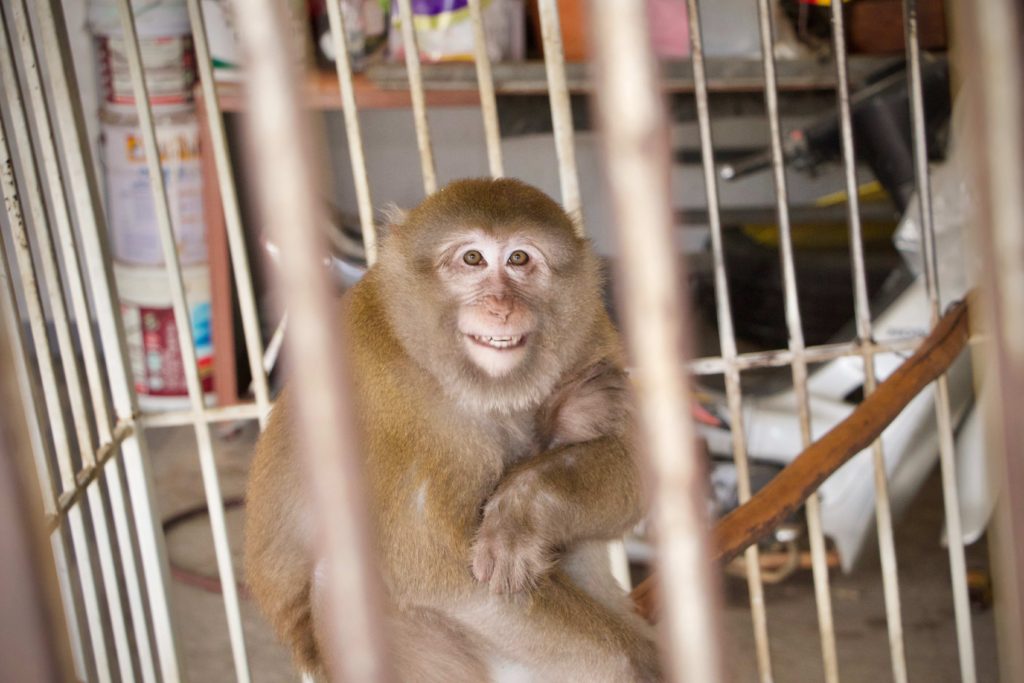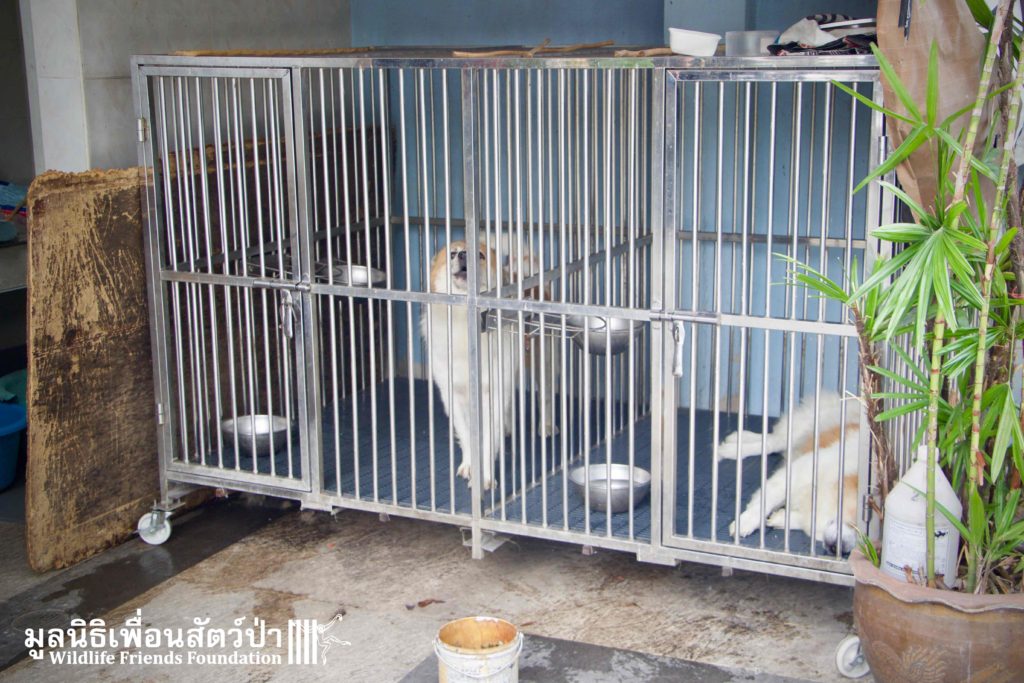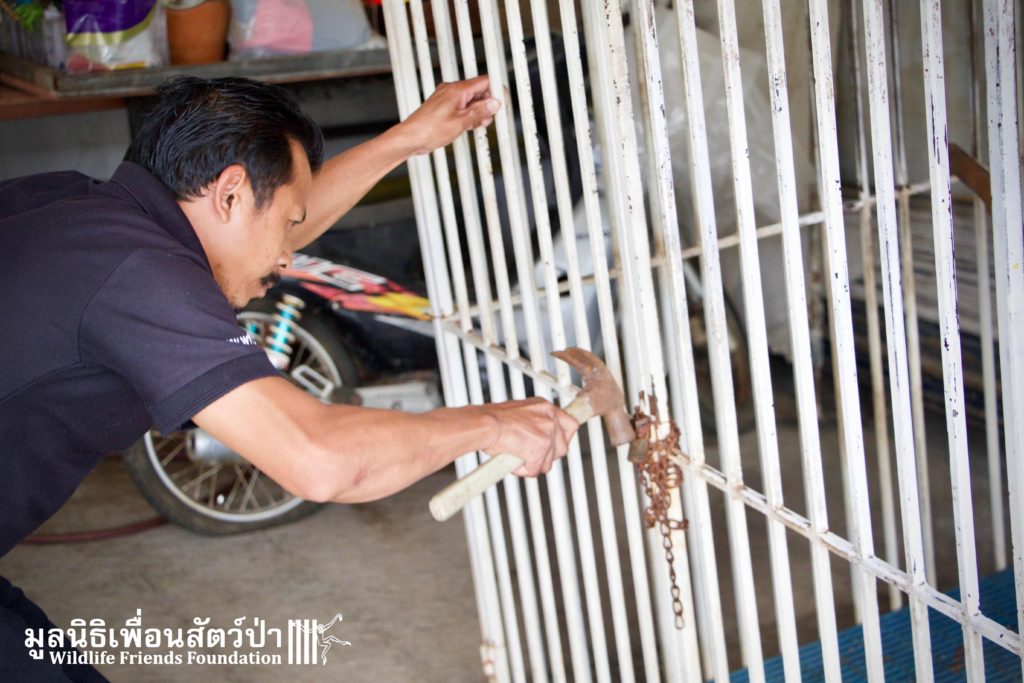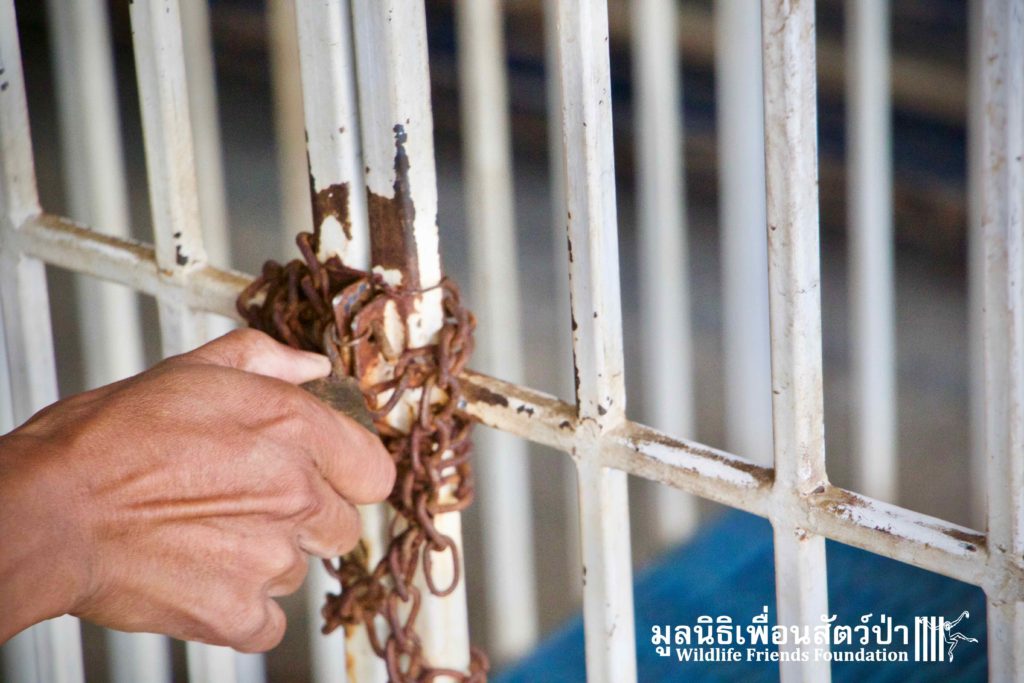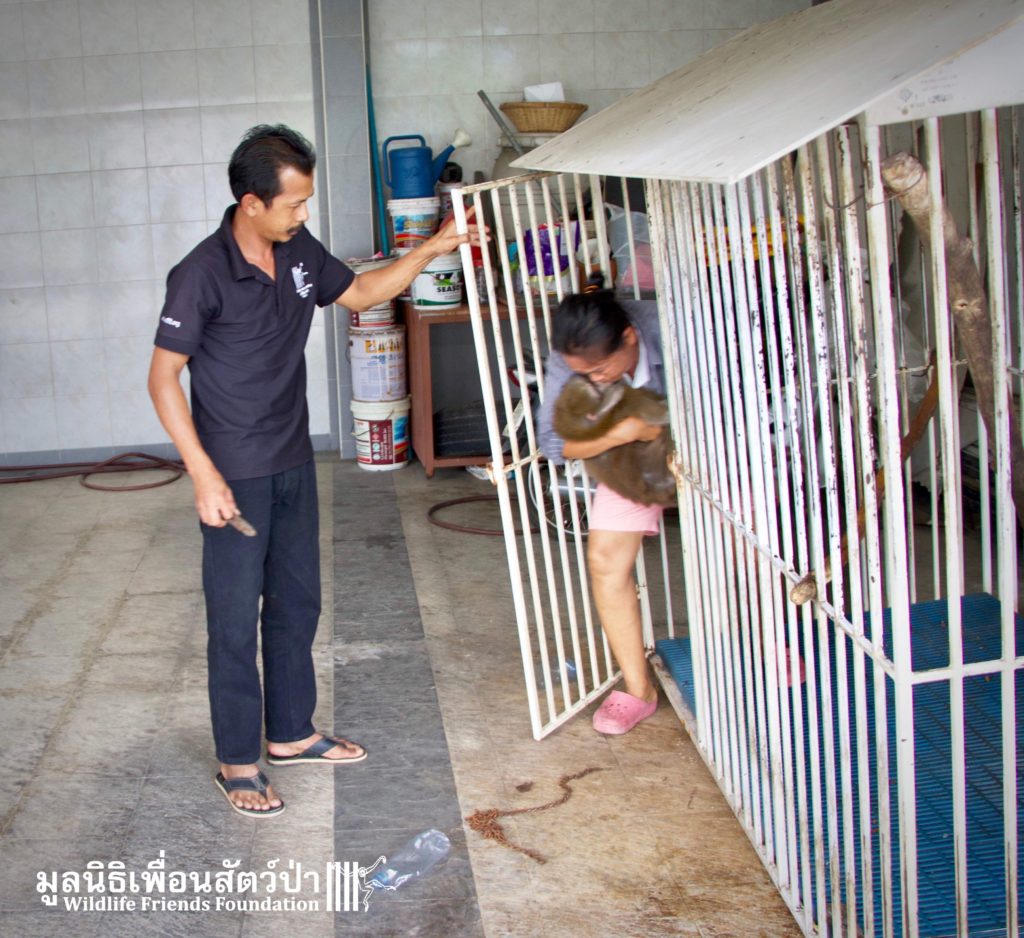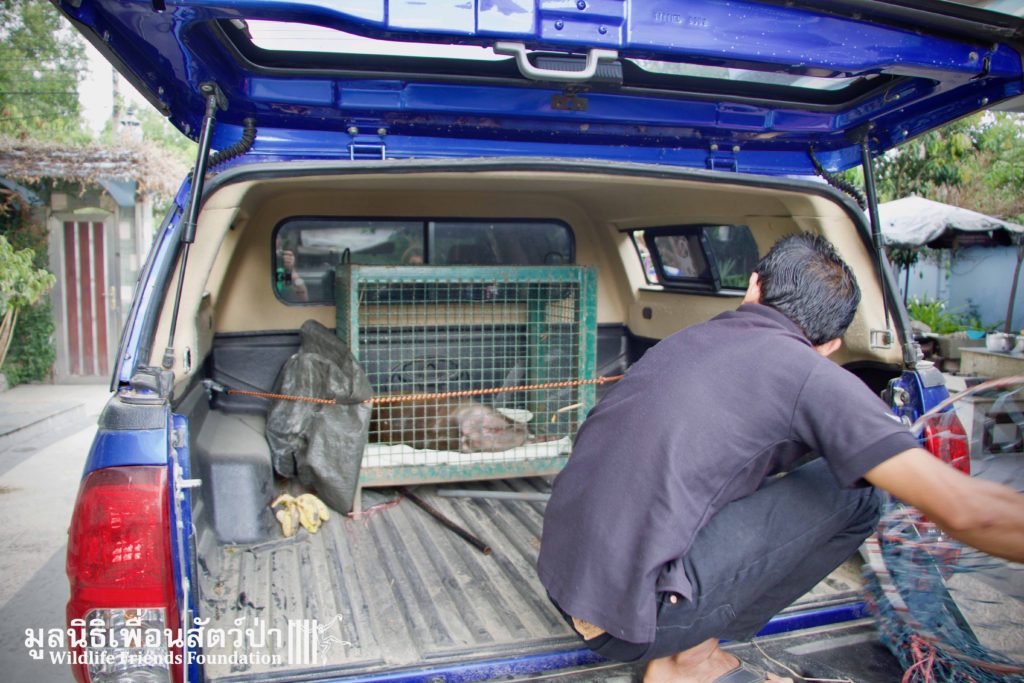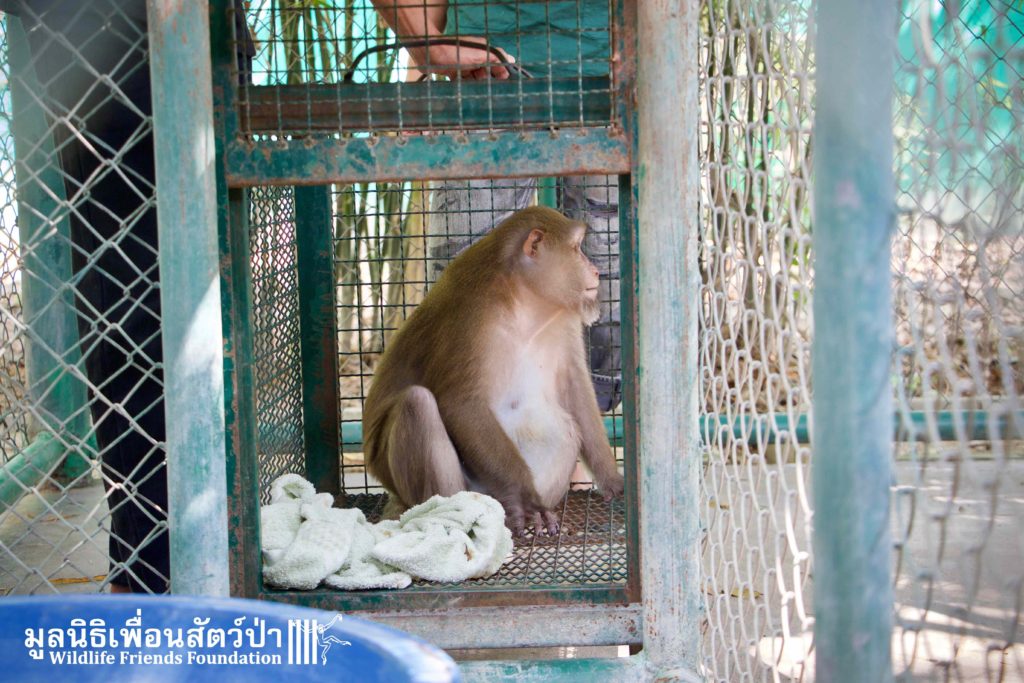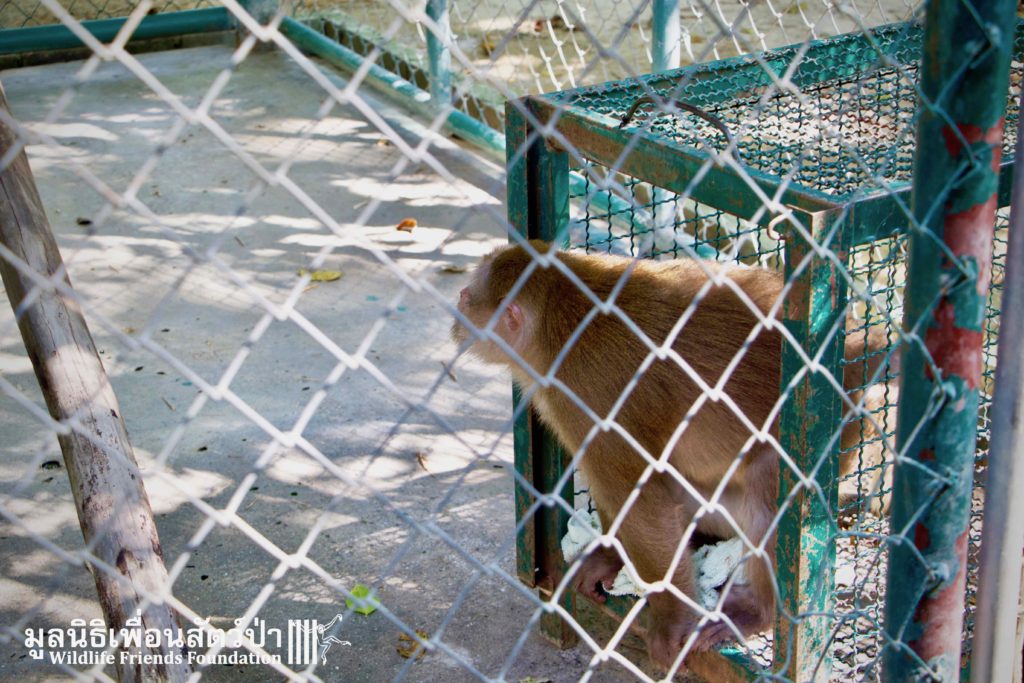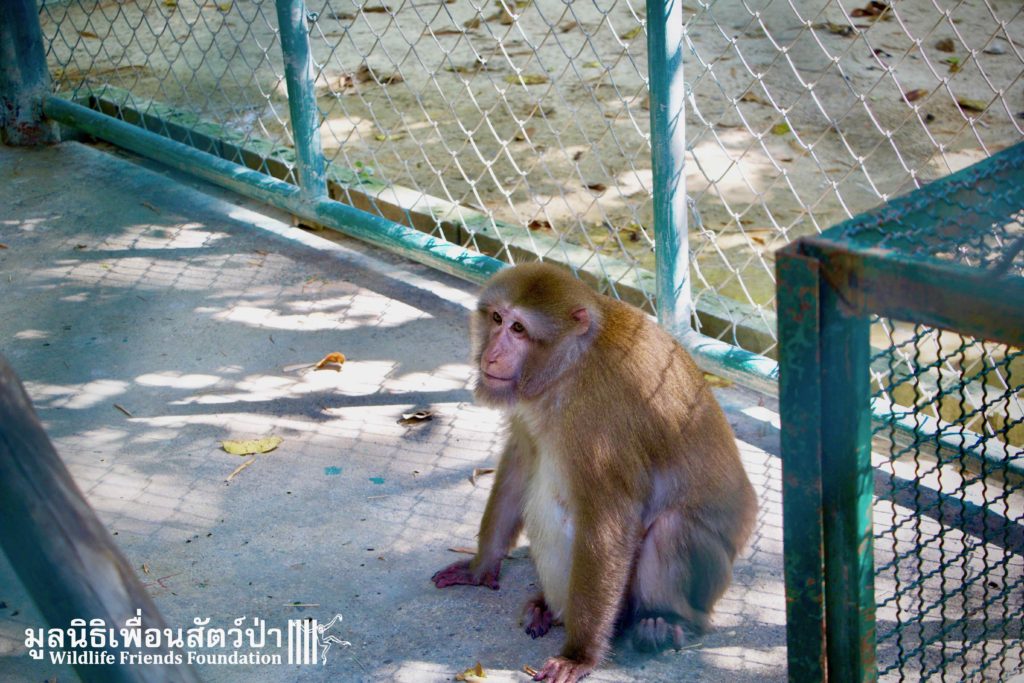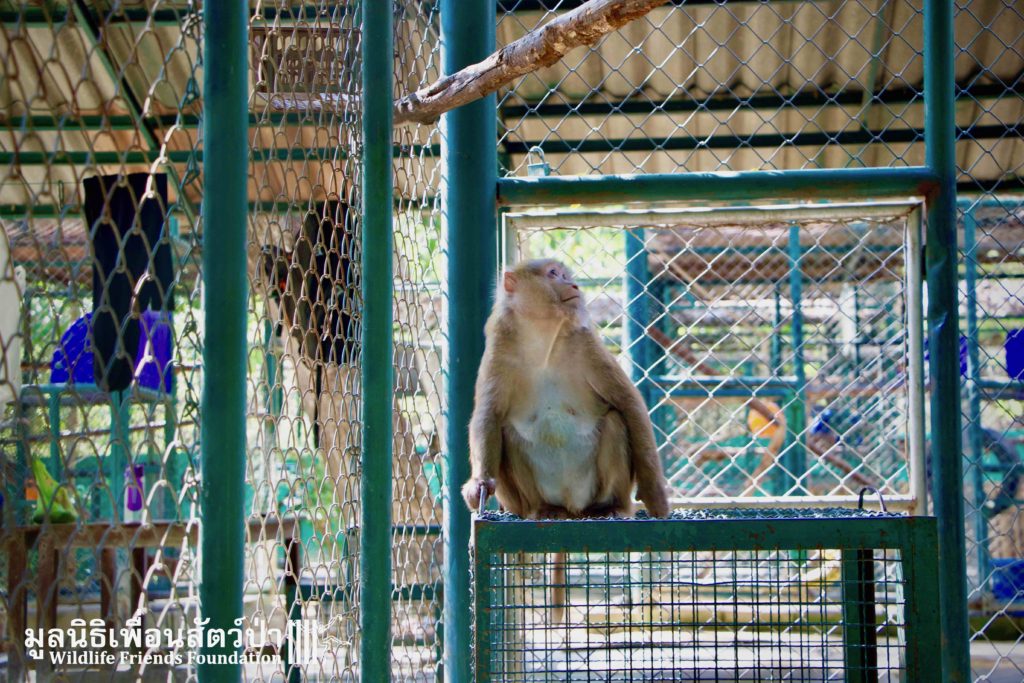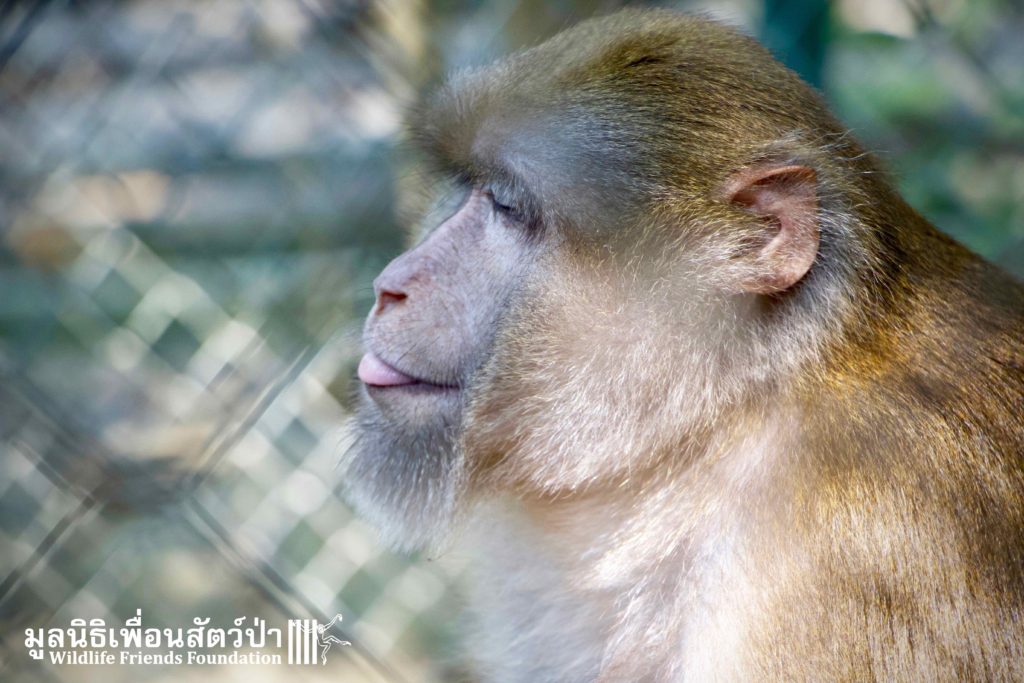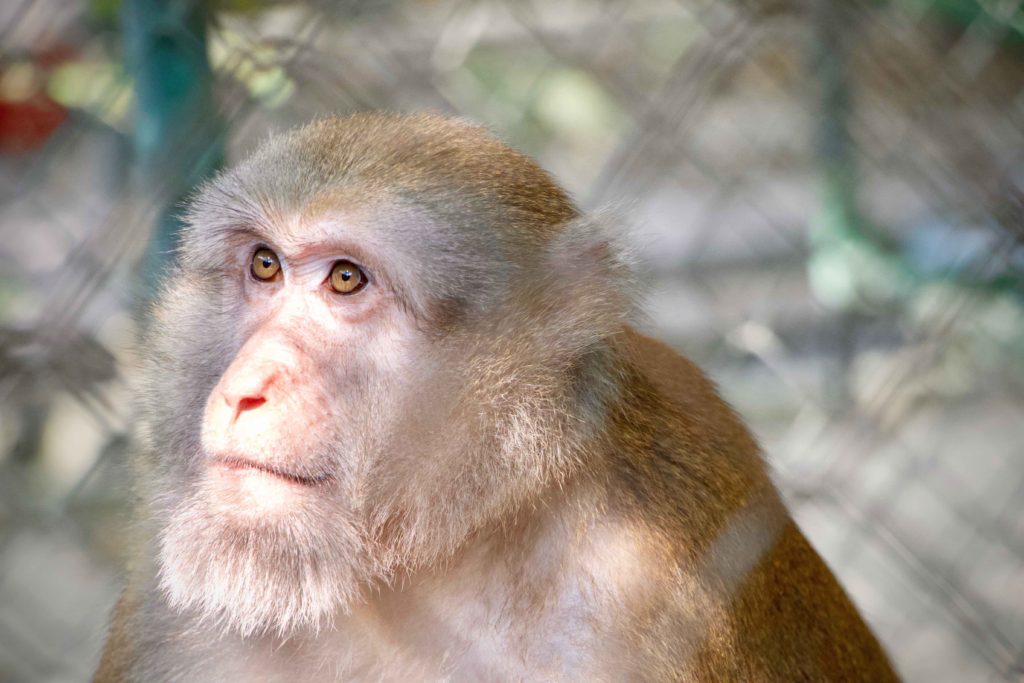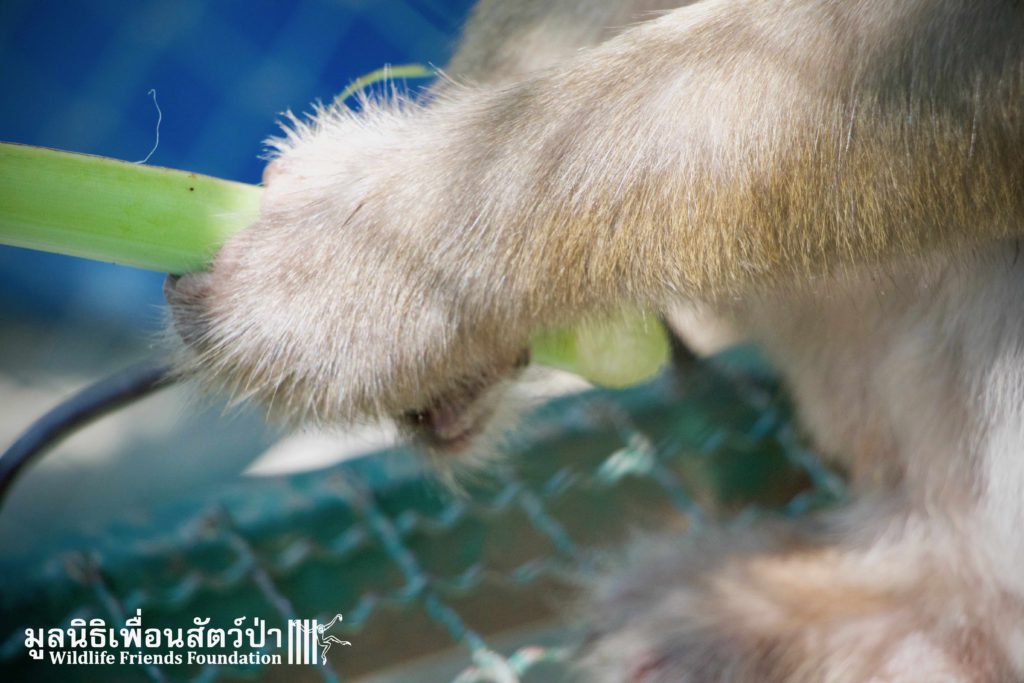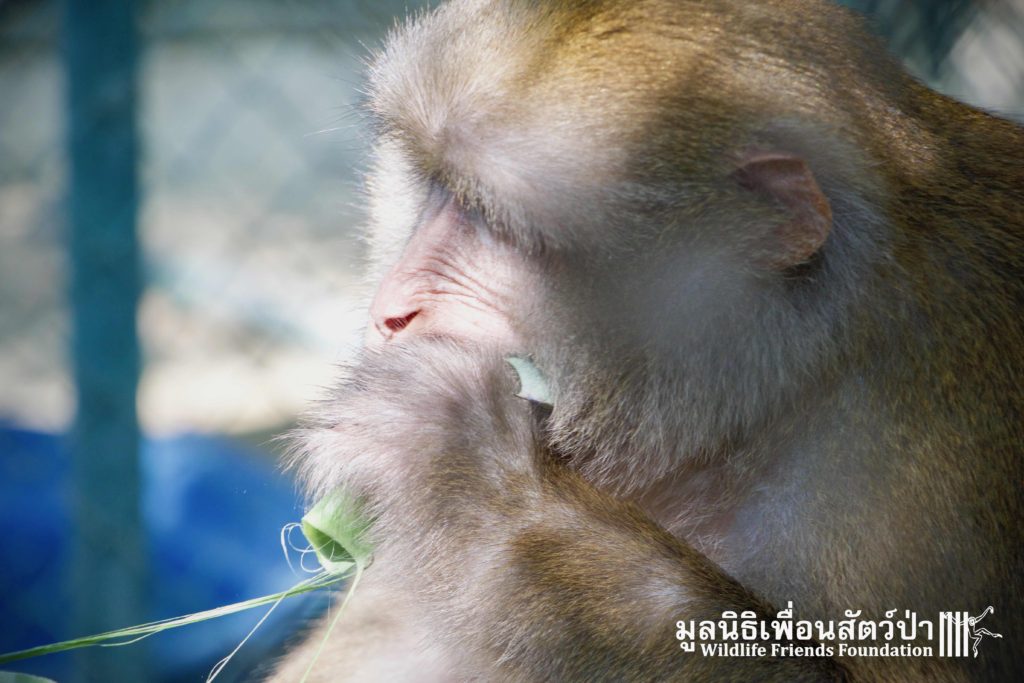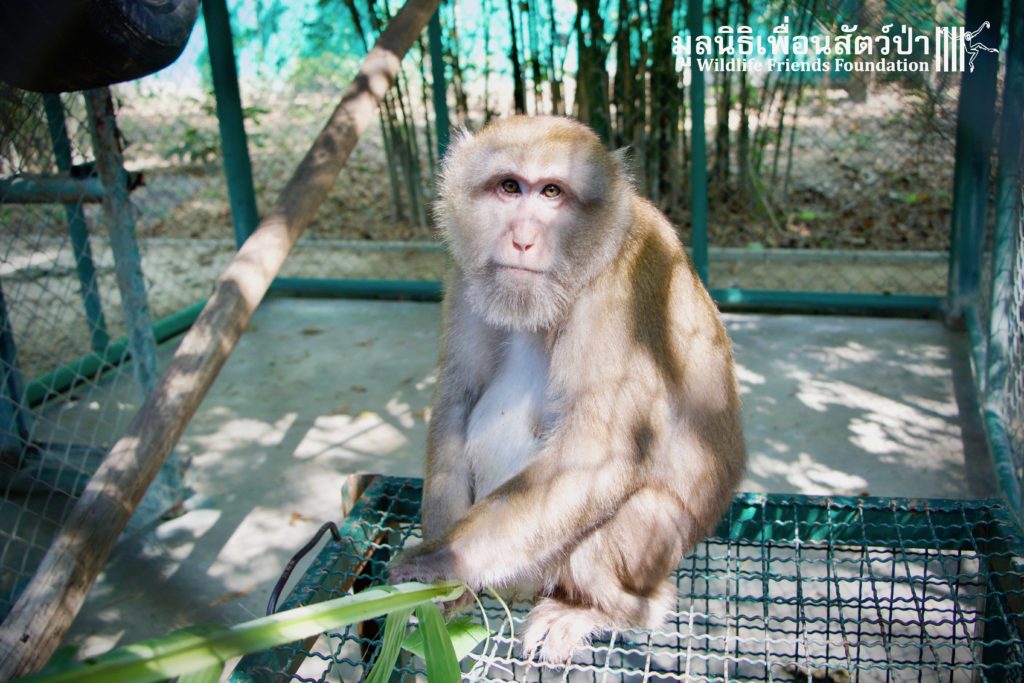Coconut monkeys endure some of the harshest conditions imaginable. Read the story of new rescued Northern pig-tailed macaque, Sen.
WFFT Rescue Team saves one more victim of human abuse & Illegal Wildlife Pet trade!
Here is the story of Somsri. A female Rhesus Macaque (Macaca mulatta) who is five-and-a-half-years old. The ‘owner’ of Somsri contacted WFFT to ask if we could provide a home for her after realising that they did not have the correct legal paperwork to keep her. She was kept for 5 years in a small empty cage, completely devoid of any physical or stimulating enrichment, her whole life so far has been pretty bleak. Her “home” was inside a garage, no sun, no natural substrate… the keys to the lock long since lost and the padlock and chain rusted together, a symbol of a forgotten prisoner in solitary confinement, with little chance of freedom. Next to her were two beautiful big dogs also confined to small cages whining and barking. They were also crying of their dream of freedom.
All those animals were babies when the owner bought them. Cute, fluffy, tiny, demanding love and attention. Sadly they grew up and it seems that they became way less interesting to their owner who left them to languish is small cages. That is one of the biggest issues of the pet trade (wild or domestic).
Luckily for Somsri, and thanks to the publicity Mali’s case brought to the WFFT center, her life was about to radically change!
The rescue team came to break her chains!
On her arrival at the WFFT center, the new resident has to stay in quarantine, a transition phase indispensable for health reason and also to give the necessary time to acclimatise to change. The aim of the WFFT Hospital Vet Team is to assess the rescued animals and to let them recover at their own pace.
But what a moment already… the moment when the transportation cage opens on a new, way bigger, more stimulating, open space enclosure under a bright sky is a magical moment!
Slowly, Somsri observes, evaluates and steps into her new life. Eyes and ears wide open … sun, other animals who don’t cry, love, attention, food, water, and space!
Let’s welcome Somsri and wish her a fast recovery.
The rhesus macaque is increasingly threatened in the wild, its original habitat is being lost to development. Capture for laboratory testing is a mostly localised threat, but it is considerable in certain areas. Capture and release of laboratory and “problem monkeys” from rural and urban areas into natural forests is a major threat to wild macaques. A large captive population is maintained around the world for use in biological, psychological and medicinal research, especially for studies into perception, learning and behaviour. They are the most studied nonhuman primate, both in the field and in laboratory settings. In the wild they are remarkably adapted to coexisting with humans and thrive near human settlement, in both urban and agricultural areas. The increasing level of cohabitation has been associated with waning levels of human tolerance for the animals resulting in human-wildlife conflicts. They are only primate with a broader geographic distribution than humans.

